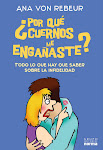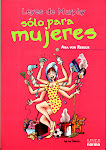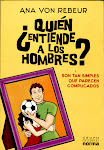

Escuchalo hablando : http://www.youtube.com/watch?v=14bMme1iYN4
Sidney Sheldon on Are You Afraid of the Dark?
Q: What is the trait you most admire in others?
A: Integrity. I admire people who are, by nature, kind and fair to others.
Q: Which historical figure do you most identify with?
A: Abraham Lincoln because he was a man filled with great compassion who believed that all men are created free and equal, and was not afraid to stand on that platform. The way Lincoln lived his life has served me well in mine. He once said, "I do the very best I know how—the very best I can; and I mean to keep doing so until the end."
Q: Which living person do you most admire?
A: The Dalai Lama. He is a very wise man of great inner peace who believes that happiness is the purpose of our lives. Through his teachings and leadership, he continues to make this world a better place in which to live.
Q: What is your most treasured possession?
A: My writing pads and pens. Years ago, when a fire broke out in the Los Angeles canyon in which we were living, police told us to evacuate. In our home were many valuables—fine jewelry, clothes, family photos and awards—but I took only my yellow pads and pens. I knew we would be holed up in a hotel somewhere for days, and couldn't imagine not being able to write.
Q: Who is your favorite hero of fiction?
A: "Atticus Finch" in To Kill A Mockingbird. He was a highly-principled lawyer who defended a young black man, falsely accused of raping an ignorant white woman, against an all-white jury.
Q: Who are your heroes in real life?
A: My heroes are those who risk their lives every day to protect our world and make it a better place—police, firefighters and members of our armed forces.
Q: What is your motto?
A: Try to leave the Earth a better place than when you arrived.
Q: You have written for stage, television and film—is there a different process for writing a novel?
A: Writing novels is the most exciting. In writing screenplays, it's a kind of shorthand. You don't describe a character as tall and lanky and laconic because if Clint Eastwood turns you down and you show it to Dustin Hoffman, you're in trouble. You don't describe the rooms because the best set decorators in Hollywood are going to be doing those rooms. In a novel, on the other hand, you not only have to describe the rooms, but the clothes, the characters and what they are thinking. It's a much more in-depth process.
Q: You are listed in the Guinness Book of Records as the most translated author in the world—why do you think people over the world have responded so positively to your novels?
A: If there is any secret to my success, I think it's that my characters are very real to me. I feel everything they feel, and therefore I think my readers care about them. As an example, in Rage of Angels, I let a little boy die and I began to get hate mail. One woman was so upset that she wrote to me from the east and begged me to call her. She said she couldn't sleep and wanted to know why I let the little boy die. It got so bad that when I did the miniseries, I let him live.
Q: The main character of your novels are [usually] women—is there a reason for that?
A: It's never been a conscious decision, though do I favor dispelling the "dumb blonde" myth. The fact that my female characters have strong personalities but are also physically attractive reflects the women I've known in my life. My mother, who was faced with raising a family during the Depression and worked at a retail store until she was in her 70's, my late wife, Jorja, and my current wife, Alexandra, epitomize the type of woman who is intelligent, purposeful and resourceful—but never at the expense of her femininity.
Q: What excites you about your new novel?
A: I like the idea of two women overcoming the enormous odds against them. Women's value has been under-recognized for far too long.
Q: What actresses do you envision in the movie version of the novel for the roles of Diane and Kelly?
A: I can't answer that question on the grounds that it may incriminate me! I would hate to offend the other very talented actresses who might want to play those roles should the two I envision not be interested.
Q: How do you research for your novel—especially locations in different countries?
A: I will not write about anyplace in the world unless I've been there to personally research it. I always spend time exploring the customs and attitudes of the countries I'm using for locations, and interviewing the people who live there. I've visited over 90 countries thus far. It's my custom to hire a driver to give me a tour of whatever city or town I am in. One night, on a lonely mountain road in Switzerland, I asked my driver where a good place might be to dump a body. I'll never forget the look on his face!
Q: Is it true that you were first published as a youngster?
A: Yes. I was first published at age ten. My father sent to Wee Wisdom magazine a poem I had written and they sent me five dollars.
Q: What was the inspiration for creating "I Dream of Jeannie?"
A: Stories had always been told about male genies coming out of bottles, but they were usually fat, old men. Never had the genie been a gorgeous woman, so that idea really appealed to me, and I created the series based on that premise. I wanted to make sure that the man who found the genie would not take terrible advantage of her, so he needed to be a person of integrity and honor—which is why I made the male lead an astronaut. The rest, as they say, is history.













